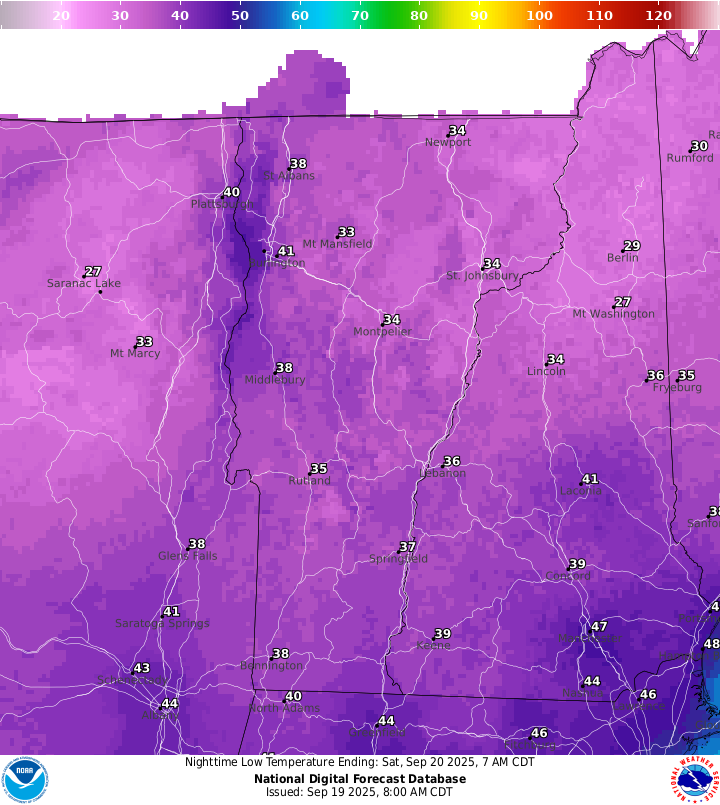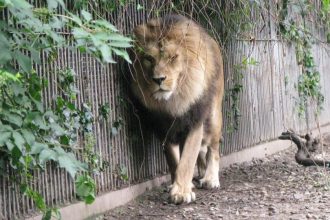Cover your plants and protect your pipes: the first freeze of the season is arriving in New England about three weeks earlier than Vermont’s historically used to seeing.
The National Weather Service has issued a Freeze Warning for northeastern Vermont and parts of northern New York, including Essex County in Vermont and Franklin and Clinton counties in New York. The warning is in effect from 2 a.m. to 8 a.m. Saturday.
“Expect plenty of sunshine associated with deep dry layer in place with coldest night of the fall season anticipated on Saturday night,” the National Weather Service office in Burlington said in its area forecast discussion.
Freeze conditions could kill crops and other sensitive vegetation and possibly damage unprotected outdoor plumbing, according to the National Weather Service office.
How cold will temperatures get across Vermont?
Forecasts from the National Weather Service and NOAA show temperatures dipping into the mid-30s to low-40s across much of the state early Saturday, Sept. 20, when the cold is expected to peak around sunrise.
In the Northeast Kingdom, towns such as Lunenburg and Island Pond could see overnight lows drop to 26–28 degrees. The chill won’t last long, though — daytime highs are expected to rebound into the 60s.
Snowfall is not expected alongside the freeze.
NOAA graphical forecast shows coldest temperatures arriving in Vermont early Saturday, Sept. 20.
When will cold air move in for fall? Average first frost dates in Vermont
The Climate Prediction Center’s outlook shows normal temperatures across Vermont through September and well-above-normal temperatures across the state in October and November.
According to historic data from the National Weather Service, Vermont here are the average frost dates in Burlington.
-
Earliest: Sept. 13 (1964)
How to protect plants and winterize pipes during a freeze
Most plants can survive brief bursts of cold weather, but prolonged freezing temperatures may end the growing season for your garden. If you still want to grow something or plan a fall garden, here are some tips:
Protecting plants:
-
Cover sensitive plants: Use sheets, blankets or frost cloths overnight. Remove coverings during the day so sunlight can reach them.
-
Move potted plants indoors: Bring pots inside or into a garage for the night if possible.
-
Water plants: Moist soil holds heat better than dry soil, helping reduce frost damage.
-
Mulch: A layer of mulch around plant bases helps insulate roots.
Winterizing pipes:
-
Drain outdoor faucets and hoses: Disconnect hoses and drain water from outdoor faucets.
-
Insulate exposed pipes: Use foam sleeves or pipe wrap on pipes in unheated areas.
-
Seal drafts: Check for cracks or openings in walls and around pipes where cold air can enter.
-
Let faucets drip: On extremely cold nights, letting indoor faucets drip slightly can prevent freezing.
Vermont weather watches and warnings
Stay informed. Get weather alerts via text
Brandi D. Addison covers weather across the United States as the Weather Connect Reporter for the USA TODAY Network. She can be reached at baddison@gannett.com.
This article originally appeared on Burlington Free Press: How cold will it get in Vermont? Season’s first freeze









